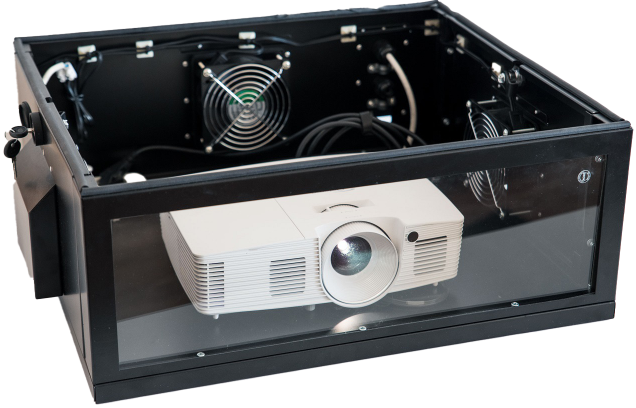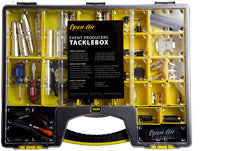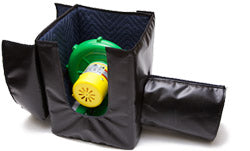
The city is hot, dusty and polluted with moped fumes and the nights are dark. Apart from that blackness of the desert sky providing ideal outdoor cinema conditions, little predisposes Ouagadougou to host a pan-African film festival. Yet Fespaco, which ended on Saturday night, has been going since 1969.
The city is hot, dusty and polluted with moped fumes and the nights are dark. Apart from that blackness of the desert sky providing ideal outdoor cinema conditions, little predisposes Ouagadougou to host a pan-African film festival. Yet Fespaco, which ended on Saturday night, has been going since 1969.
Every other year, 5,000 "festivaliers" from all over the world come to the capital of Burkina Faso and wonder at the feat of organisation Fespaco represents. They see movies ranging from the appalling to the superb, such as Ali Zaoua, a touching Moroccan film about street children, which on Saturday deservedly galloped off with the "Stallion of Yennenga" award.
Many of these festival-goers represent the cream of arty cinema and television in Europe and the United States, and they believe backing African film is "the right thing to do". On a continent where it is still possible to meet a child who, at the age of eight or 10, is seeing a moving image on a screen for the first time, they have a point. But the unthinking festivaliers arrive, they cover themselves in mosquito repellent, they sweat, they apply more spray, they watch films, they buy Touareg souvenirs, and they leave. These people, whom one imagines to be intelligent and concerned about Africa, ask no questions, though their hosts are part and parcel of one of the most repressive regimes in Africa.
Occasionally, during the week-long festival, the reality of life in Burkina Faso intrudes. This year, two directors tried to screen out-of-competition films broaching the murder of a newspaper editor, Norbert Zongo, in December 1998.
Mr Zongo, his brother and two other men were burnt alive in their car during an investigation into the killing of David Ouedraogo, the chauffeur of President Blaise CompaorГ©. Adriaan van Rouvoy, a Dutchman who made Red Hat, Where Are You? and Abdul Drabos Ouedraogo from Burkina Faso, who made Words Against The Forgotten, said their posters were torn down and their flyers removed from hotel lobbies. Both screenings were cancelled with no explanation.
This matters. President CompaorГ©, who presented the prizes on Saturday night with his wife, Chantal, and a plethora of ministers, is vastly influential in West Africa. He has ruled the former French colony of Upper Volta since Thomas Sankara was mysteriously removed from power and murdered in 1987. The United Nations claims this "cinephile" is a key player in the arms for-diamonds scourge that fuels the wars in Sierra Leone and Angola.
At home, his brutal regime violently suppressed demonstrations marking the second anniversary of Mr Zongo's death. In the developed world, journalists may be annoying but, in African countries such as Burkina Faso, they often wage lone, brave battles for accountability and democracy.
Yet the festivaliers have every intention of returning for the 18th edition of Fespaco in 2003. Even as the UN considers sanctions against Liberia this week for backing rebels in Sierra Leone, there is no talk of boycotting this desert land. So, presumably, the cinema industry will keep coming to the "Oscars of the desert", shrouded as much in magical desert blackness as in dark human rights abuses.
Source:
http://newsforums.bbc.co.uk/nol/thread.jspa?forumID=2601&edition=2&ttl=20081126175554#2399027
 The city is hot, dusty and polluted with moped fumes and the nights are dark. Apart from that blackness of the desert sky providing ideal outdoor cinema conditions, little predisposes Ouagadougou to host a pan-African film festival. Yet Fespaco, which ended on Saturday night, has been going since 1969.
The city is hot, dusty and polluted with moped fumes and the nights are dark. Apart from that blackness of the desert sky providing ideal outdoor cinema conditions, little predisposes Ouagadougou to host a pan-African film festival. Yet Fespaco, which ended on Saturday night, has been going since 1969.
Every other year, 5,000 "festivaliers" from all over the world come to the capital of Burkina Faso and wonder at the feat of organisation Fespaco represents. They see movies ranging from the appalling to the superb, such as Ali Zaoua, a touching Moroccan film about street children, which on Saturday deservedly galloped off with the "Stallion of Yennenga" award.
Many of these festival-goers represent the cream of arty cinema and television in Europe and the United States, and they believe backing African film is "the right thing to do". On a continent where it is still possible to meet a child who, at the age of eight or 10, is seeing a moving image on a screen for the first time, they have a point. But the unthinking festivaliers arrive, they cover themselves in mosquito repellent, they sweat, they apply more spray, they watch films, they buy Touareg souvenirs, and they leave. These people, whom one imagines to be intelligent and concerned about Africa, ask no questions, though their hosts are part and parcel of one of the most repressive regimes in Africa.
Occasionally, during the week-long festival, the reality of life in Burkina Faso intrudes. This year, two directors tried to screen out-of-competition films broaching the murder of a newspaper editor, Norbert Zongo, in December 1998.
Mr Zongo, his brother and two other men were burnt alive in their car during an investigation into the killing of David Ouedraogo, the chauffeur of President Blaise CompaorГ©. Adriaan van Rouvoy, a Dutchman who made Red Hat, Where Are You? and Abdul Drabos Ouedraogo from Burkina Faso, who made Words Against The Forgotten, said their posters were torn down and their flyers removed from hotel lobbies. Both screenings were cancelled with no explanation.
This matters. President CompaorГ©, who presented the prizes on Saturday night with his wife, Chantal, and a plethora of ministers, is vastly influential in West Africa. He has ruled the former French colony of Upper Volta since Thomas Sankara was mysteriously removed from power and murdered in 1987. The United Nations claims this "cinephile" is a key player in the arms for-diamonds scourge that fuels the wars in Sierra Leone and Angola.
At home, his brutal regime violently suppressed demonstrations marking the second anniversary of Mr Zongo's death. In the developed world, journalists may be annoying but, in African countries such as Burkina Faso, they often wage lone, brave battles for accountability and democracy.
Yet the festivaliers have every intention of returning for the 18th edition of Fespaco in 2003. Even as the UN considers sanctions against Liberia this week for backing rebels in Sierra Leone, there is no talk of boycotting this desert land. So, presumably, the cinema industry will keep coming to the "Oscars of the desert", shrouded as much in magical desert blackness as in dark human rights abuses.
Source: http://newsforums.bbc.co.uk/nol/thread.jspa?forumID=2601&edition=2&ttl=20081126175554#2399027
The city is hot, dusty and polluted with moped fumes and the nights are dark. Apart from that blackness of the desert sky providing ideal outdoor cinema conditions, little predisposes Ouagadougou to host a pan-African film festival. Yet Fespaco, which ended on Saturday night, has been going since 1969.
The city is hot, dusty and polluted with moped fumes and the nights are dark. Apart from that blackness of the desert sky providing ideal outdoor cinema conditions, little predisposes Ouagadougou to host a pan-African film festival. Yet Fespaco, which ended on Saturday night, has been going since 1969.
Every other year, 5,000 "festivaliers" from all over the world come to the capital of Burkina Faso and wonder at the feat of organisation Fespaco represents. They see movies ranging from the appalling to the superb, such as Ali Zaoua, a touching Moroccan film about street children, which on Saturday deservedly galloped off with the "Stallion of Yennenga" award.
Many of these festival-goers represent the cream of arty cinema and television in Europe and the United States, and they believe backing African film is "the right thing to do". On a continent where it is still possible to meet a child who, at the age of eight or 10, is seeing a moving image on a screen for the first time, they have a point. But the unthinking festivaliers arrive, they cover themselves in mosquito repellent, they sweat, they apply more spray, they watch films, they buy Touareg souvenirs, and they leave. These people, whom one imagines to be intelligent and concerned about Africa, ask no questions, though their hosts are part and parcel of one of the most repressive regimes in Africa.
Occasionally, during the week-long festival, the reality of life in Burkina Faso intrudes. This year, two directors tried to screen out-of-competition films broaching the murder of a newspaper editor, Norbert Zongo, in December 1998.
Mr Zongo, his brother and two other men were burnt alive in their car during an investigation into the killing of David Ouedraogo, the chauffeur of President Blaise CompaorГ©. Adriaan van Rouvoy, a Dutchman who made Red Hat, Where Are You? and Abdul Drabos Ouedraogo from Burkina Faso, who made Words Against The Forgotten, said their posters were torn down and their flyers removed from hotel lobbies. Both screenings were cancelled with no explanation.
This matters. President CompaorГ©, who presented the prizes on Saturday night with his wife, Chantal, and a plethora of ministers, is vastly influential in West Africa. He has ruled the former French colony of Upper Volta since Thomas Sankara was mysteriously removed from power and murdered in 1987. The United Nations claims this "cinephile" is a key player in the arms for-diamonds scourge that fuels the wars in Sierra Leone and Angola.
At home, his brutal regime violently suppressed demonstrations marking the second anniversary of Mr Zongo's death. In the developed world, journalists may be annoying but, in African countries such as Burkina Faso, they often wage lone, brave battles for accountability and democracy.
Yet the festivaliers have every intention of returning for the 18th edition of Fespaco in 2003. Even as the UN considers sanctions against Liberia this week for backing rebels in Sierra Leone, there is no talk of boycotting this desert land. So, presumably, the cinema industry will keep coming to the "Oscars of the desert", shrouded as much in magical desert blackness as in dark human rights abuses.
Source: http://newsforums.bbc.co.uk/nol/thread.jspa?forumID=2601&edition=2&ttl=20081126175554#2399027





